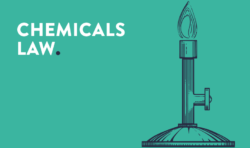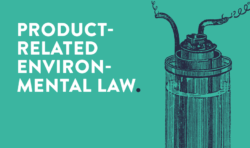The background of the upcoming changes is that the last transitional period for the registration of so-called phase-in substances within the meaning of Article 3 No. 20 REACH expired on 1 June 2018. Thus, further privileged treatment of these phase-in substances compared to non-phase-in substances is no longer justified. Essentially, the Implementing Regulation (EU) 2019/1692 leads to four central changes:
All previous pre-registrations (Art. 28 REACH) will be dropped without replacement.
This means that from 1 January 2020 substances can only be registered after they have undergone a so-called “inquiry procedure” in accordance with Article 26 REACH (“Inquiry Process”). Until 31 December 2019, registration is still possible without going through the inquiry procedure if a pre-registration has been completed.
For companies with existing pre-registrations, this means that it may be worthwhile to complete any pending registrations before the end of this year in order to avoid the detour via the inquiry procedure. Companies that do not have pre-registrations or have already finally registered their substances are not affected by this change.
Three-year average calculation no longer applicable
Previously, for the determination of the transitional period and of applicable data requirements for registration, the quantities of phase-in substances manufactured or imported had to be determined on the basis of the average tonnage of the immediately preceding three years (Article 3 No 30 REACH). This specific approach for phase-in substances will no longer apply from 1 January 2020, so that from that date all substances will be subject to the same calculation per calendar year.
This
may result in additional obligations, especially for companies that have optimized
their manufacture or import volumes with a view to the three-year average. On
the one hand, exceedances of the threshold of 1 tonne per year can no longer be
compensated in future by underruns in previous or subsequent years, so that any
(expected) exceedance in a calendar year will trigger the registration obligation.
On the other hand, data requirements will always be determined by the quantity
per calendar year, so that registrants will be obliged to update existing
registration dossiers more frequently. The latter will be the case, for
example, if, in order to achieve a lower tonnage band, high import volumes of a
substance have been generated in one year, but these have been offset on
average by low imports in the following two years. In such a scenario, the year
with the highest import volumes will be decisive in future.
SIEFs are no longer existing
Formally, all registrants who submitted a registration dossier for a phase-in substance before the end of the last transitional period for registrations on 1 June 2018 were required to participate in a substance information exchange forum (SIEF) under Article 29 REACH. The SIEFs can be briefly described as a formalized platform for the exchange of shared data concerning the substance to be registered. For non-phase-in substances, however, such SIEFs did not exist, and thus the exchange of data to be shared took place without such formalization between the existing and the new registrants.
According to the current forecast, the changes that companies will face as a result of the abolition of formalized SIEFs are unlikely to be serious, as data sharing obligations continue to exist and existing structures can basically be maintained and used in the future for the realization of a fair, transparent and non-discriminatory data sharing.
Changes concerning disputes in data sharing agreements
From 1 January 2020, Article 30 REACH will no longer apply to data sharing disputes. In future, such disputes will only be handled in accordance with Article 27 REACH. In terms of content, this essentially means that in future ECHA will no longer be able to grant potential registrants access only to vertebrate animal studies, but to all studies contained in a dossier.
In summary, these changes should be thought through against the background of the company’s previous registration practice and, if necessary, appropriate implementation measures should be initiated in order to secure and guarantee the marketability of manufactured and imported substances as such or in mixtures in the future.
Link to the document: Implementing Regulation (EU) 2019/1692
Do you have any questions about this news, or would you like to discuss the news with the author? Please contact: Martin Ahlhaus






